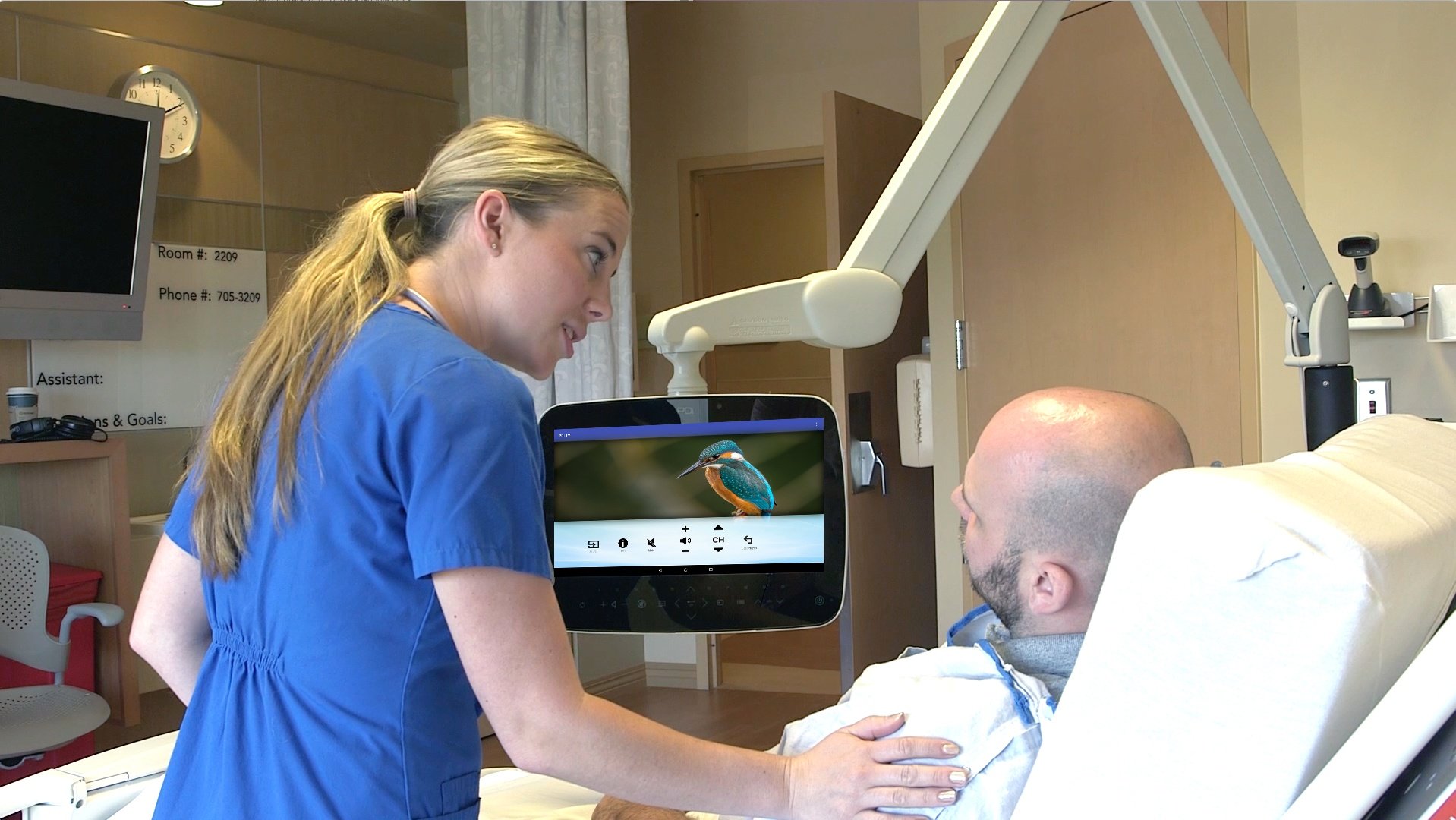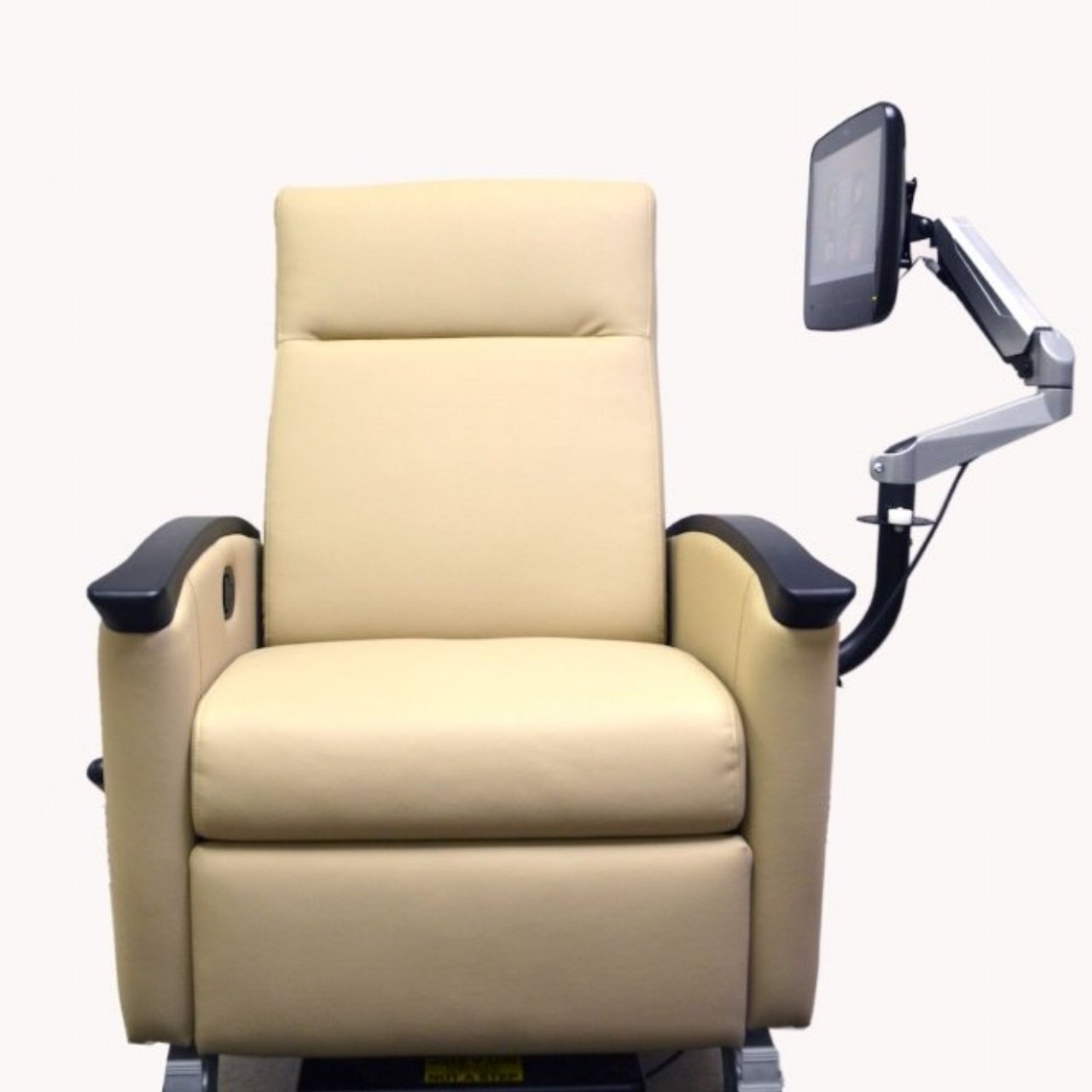Smart TV: the Digital Hub of Virtual Care
As healthcare continues to evolve in the digital age, the concept of the “smart room” is emerging as a pivotal innovation in healthcare, anchored by...

Patient care coordinators wear many hats, at their core they are master communicators. Imagine, for a moment, that you’ve just been discharged from the hospital. You’re full of happiness and celebration, but in some ways now is when the real work begins. In this case, you have many weeks of therapy and rehab ahead of you. You’ll also have multiple follow-up visits with your doctors, and you might need to see a specialist for ongoing recommendations.
Just reading that list can begin to feel overwhelming. This is where a patient coordinator can come to the rescue. Care coordinators can walk with patients through this journey and help you navigate the next steps in their healing journey. They can help them better understand and follow their treatment plans, manage insurance and ensure that the patient is educated through this process.
Communication with patients and their families is not only the biggest part of a patient coordinator’s job, but it’s also the most important in many ways. Healthcare can be challenging on the best days, and being in the hospital is emotionally and mentally draining for patients and their loved ones. Even for someone well-versed in the healthcare industry, it can be difficult to think straight when they or someone they know is experiencing a medical crisis.
The patient care coordinator can step in to be your liaison. They understand how the healthcare system works, and they can help navigate patients through it. Care coordinators can answer questions, explain policies and procedures, and walk the patient through their treatment plan so they understand what’s coming next and why it’s going to help them.
Another very important part of a care coordinator’s job is handling and managing patient information. From reviewing electronic health records to contacting insurance companies, patient care coordinators juggle plenty of paperwork. Especially in acute and post-acute rehabilitation hospitals, navigating insurance can feel like a full-time job, and not one that a patient wants to undertake while they’re trying to rest and recover. A care coordinator can help patients understand what their insurance provider needs and how to submit that information.
Care coordinators can even assist with scheduling appointments to ensure patients stay on track with their recovery. When going through rehab, missing a therapy session can be the same as taking a step backwards. To avoid this, patients need to follow their recommended schedules, and care coordinators can assist in making that happen.
Patient care coordinators educate more than just patients and their families. They also help volunteers and staff understand patient safety and privacy. Care coordinators can help train their co-workers on the importance of the continuum of care, guest relations and resources that are available to patients and their families.
Care coordinators can sometimes be the go-to person whenever someone has a question. If they don’t know the answer, chances are high that they know who to ask or how to find the answer. Education is a key part of their role, and they’re always ready to lend a hand to help the people on their team grow.
The patient coordinator role is important in healthcare, and especially in inpatient rehab hospitals. Care coordinators help patients understand what’s going on with their care, stay on schedule and recover well. This can help save time and money in multiple ways. Did you know that your hospital might be losing money to hidden costs? Find out more by downloading this cost calculator.

As healthcare continues to evolve in the digital age, the concept of the “smart room” is emerging as a pivotal innovation in healthcare, anchored by...

Patient-centered care brings patient engagement and personal involvement in care to a new level. When facilities try to implement patient-centered...

The best healthcare experience comes from putting people first.